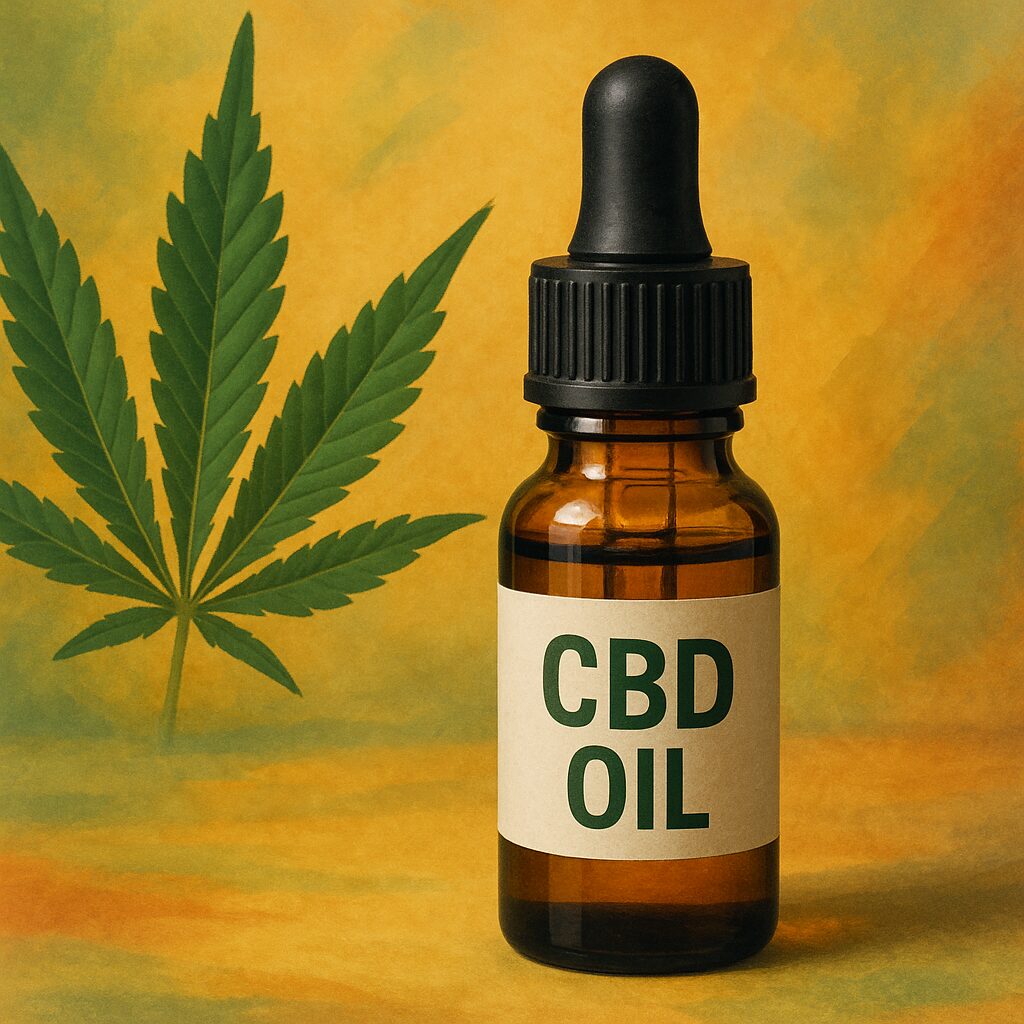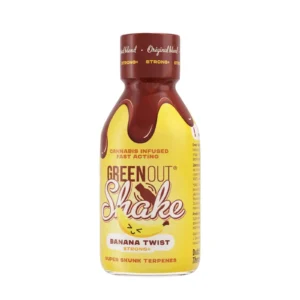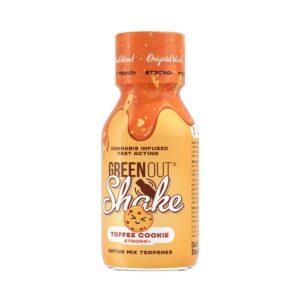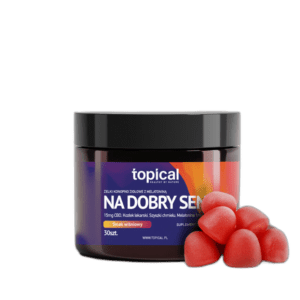In recent years, CBD oil has gained immense popularity as a natural supplement to support health and well-being. More and more people are reaching for it, seeking relief from stress, pain or sleep problems. However, the multitude of products available can be overwhelming - how do you choose the right one?
In this article, we'll explain what CBD oil is, its properties, types of CBD oil, and how to make an informed choice. Whether you're a beginner or an experienced user, you'll find practical tips to help you find the perfect product.
What is CBD oil?
CBD oil is a product extracted from hemp seed (Cannabis sativa), which is a legal variety of hemp low in THC - the psychoactive substance responsible for the "high." Cannabidiol (CBD) is one of more than 500 chemical compounds found in hemp, known for its potential health benefits. The process of producing CBD oil involves extracting cannabidiol from the flowers and leaves of the plant, usually using the CO2 method, which ensures high purity of the product. The CBD is then dissolved in a carrier oil, such as hemp oil, MCT or olive oil, making it easier to use.
In Poland, CBD oil is legal, as long as the THC content does not exceed 0.2%, according to European Union regulations and the Polish Anti-Drug Addiction Act. It is important to choose products from reputable manufacturers that provide certificates of analysis confirming composition and safety. CBD oil differs from hemp seed oil, which does not contain cannabinoids, but is rich in omega fatty acids.
Properties and benefits of CBD oil
Cannabidiol interacts with the endocannabinoid system, which regulates many bodily functions such as mood, sleep, appetite and immune response. Research indicates that CBD may offer a variety of benefits, although many require further study. Among the potential properties of CBD are:
- Analgesic effect: It can relieve chronic pain, such as arthritis or fibromyalgia.
- Reduction of inflammation: Helps with autoimmune diseases due to its anti-inflammatory properties.
- Mental health support: Reduces anxiety and stress, which is especially valuable in today's fast-paced life.
- Improving sleep: Facilitates falling asleep and improves sleep quality, as confirmed by users and preliminary studies.
- Neuroprotective effects: May promote nervous system health, which is promising in the context of neurodegenerative diseases.
It is worth remembering that the effects of CBD are individual and depend on factors such as weight, metabolism and health. It is advisable to consult a doctor before starting use, especially in combination with medications, as CBD can affect the metabolism of certain medications.
Types of CBD oils
CBD oils vary in composition, which affects their effects and use. There are three main types on the market: full spectrum, broad spectrum and isolate. Each has unique characteristics that are worth learning about before buying.
Full Spectrum (Full Spectrum)
Full-spectrum oils contain all the cannabinoids naturally found in cannabis, including CBD, CBG, CBN, CBC and trace amounts of THC (less than 0.2%). In addition, they contain terpenes, flavonoids and other plant compounds that can enhance the effects of CBD through the so-called synergistic effect (entourage effect). This effect relies on the ingredients enhancing each other, which can increase the effectiveness of the product. Full-spectrum oils are recommended for those seeking maximum therapeutic benefits who are not concerned about minimal amounts of THC.
Broad Spectrum (Broad Spectrum)
Broad spectrum oils are similar to full spectrum, but THC is completely removed from them during the distillation process. They contain other cannabinoids, terpenes and flavonoids, which still allows for a partial synergistic effect, albeit slightly weaker than full spectrum. They are an ideal choice for people who want to avoid THC, such as for reasons of drug testing or personal preference.
Isolate
CBD isolates are the purest form of cannabidiol, typically containing 99% CBD without other cannabinoids, terpenes or THC. They are suitable for people who want to take CBD exclusively, such as because of allergies to other plant compounds or the need for precise dosing. Isolates may be less effective in some cases because they don't benefit from synergistic effects, but they are a safe choice for beginners.
Other differences
In addition to type, CBD oils vary in concentration (from 5% to 30% or more, e.g. 500 mg to 6,000 mg in 10 ml) and carrier oil (e.g. MCT, hemp, oil). Some products contain supplements such as melatonin for sleep or turmeric for immune support. The choice depends on individual needs and taste preferences.
How to choose the right CBD oil?
Choosing the right CBD oil requires considering several key factors to ensure effectiveness and safety:
- Purpose of application: Consider why you want to use CBD. For example, if you are looking for sleep support, choose melatonin or full-spectrum oil for better relaxation effects. For chronic pain, full spectrum may be more effective due to the synergistic effect.
- Oil type: Decide whether you prefer full spectrum (with THC), broad spectrum (without THC) or isolate (pure CBD). Those undergoing drug testing should choose broad spectrum or isolate.
- Concentration: Beginners should start with a low concentration, such as 5% (500 mg in 10 ml), which allows for easy dose adjustments. More experienced users can choose higher concentrations, such as 15% or 20%, depending on their needs.
- Product quality: Look for oils from certified organic crops, free of pesticides, mold and heavy metals. Reputable manufacturers provide certificates of analysis (COAs) that confirm the composition and purity of the product. The CO2 extraction method is considered the best because it ensures high quality and purity.
- Price and reviews: Compare prices, but avoid the cheapest products, which may be of low quality. Check the reviews of other users to evaluate the effectiveness and reliability of the brand.
- Carrier oil: Some carrier oils, such as MCTs, can improve CBD absorption, while hemp oil provides additional nutrients such as omega acids.
The table below summarizes the key selection factors:
| Factor | Description |
|---|---|
| Purpose of application | Determine whether you use CBD for sleep, pain, stress or other ailments. |
| Oil type | Full spectrum, broad spectrum or isolate as needed. |
| Concentration | Start with 5% for beginners, increase as needed. |
| Quality | Certifications, organic cultivation, CO2 extraction method. |
| Price | Compare, but avoid the cheapest products. |
| Carrier oil | MCT for better absorption, hemp for nutritional value. |
CBD oil dosage
CBD dosage is individual and depends on weight, metabolism, purpose of use and oil concentration. There is no universal dose, but general guidelines suggest starting with 10-20 mg of CBD per day, divided into 1-2 doses. For example, in 5% oil (500 mg in 10 ml), one drop contains about 2.5 mg of CBD, so 4-8 drops per day is a good starting point.
The most effective method is sublingual application: place the drops under the tongue, hold for 30-60 seconds, and then swallow. This ensures rapid absorption through the mucous membranes. Studies indicate that taking CBD after a meal containing healthy fats can increase its absorption.
Start with a low dose and observe the body's reaction for 3-7 days. If the effects are insufficient, increase the dose by 5-10 mg every few days until you find the optimal amount. Take notes of your observations to better adjust your dosage. If you have a serious medical condition or are taking medications, consult your doctor, as CBD can affect the metabolism of some medications.
FAQ
Is CBD oil legal in Poland?
Yes, CBD oil is legal in Poland if it contains less than 0.2% THC and is derived from hemp seed.
Does CBD oil cause intoxication?
No, CBD oil does not cause intoxication because it contains minimal or no THC, depending on the type (broad spectrum or isolate).
How to use CBD oil?
It is best used by the sublingual method: place the drops under the tongue, hold for 30-60 seconds, and then swallow for better absorption.
What is the recommended dosage of CBD oil?
Start with 10-20 mg per day, adjusting the dose individually. Increase gradually, observing the effects.
Are there any side effects of using CBD oil?
Side effects are rare, but may include drowsiness, dry mouth or changes in appetite. These are usually mild and transient.
Can I use CBD oil with other medications?
CBD can affect the metabolism of some drugs, so consult your doctor before use.
What is the difference between CBD oil and hemp seed oil?
CBD oil comes from hemp flowers and leaves and contains cannabinoids, while hemp seed oil is extracted from the seeds and does not contain CBD, but is rich in omega acids.
Choosing the right CBD oil requires understanding your needs, knowing the types of oils and paying attention to the quality of the product. Full-spectrum, broad-spectrum and isolate offer different benefits, and the appropriate concentration and dosage depend on individual preferences. Always choose products from reputable suppliers with laboratory certifications and, if necessary, consult your doctor. With an informed approach, you can realize the full potential of CBD oil for your health and well-being.








